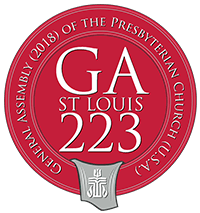By James Calvin Davis, Middlebury College

Reinhold Niebuhr once wrote, “Whenever the followers of one political party persuade themselves that the future of the nation is not safe with the opposition in power, it becomes fairly certain that the nation’s future is not safe, no matter which party rules. For such public acrimony endangers the nation’s health more than any specific policies.”[1] Clearly we are at the moment Niebuhr once feared. Chris Iosso’s summary of the “seven sins” of anti-democratic politics cites the pernicious problem of incivility, claiming that it is not only a political but also a theological problem for American Christians. I could not agree more, and in fact I believe that the vitriolic atmosphere in our national politics (and many states as well) gives sinister power to some of the other sins on Iosso’s list. American Christians should see incivility as social sin, the manifestation of the worst of our disordered nature. At the same time, the virtues of theological tradition also promise an antidote to this social sin, and an opportunity for Christians to have a positive influence on the American public square.
In contrast to the negativity our culture apparently accepts to be “politics as usual,” I understand civility to be “the exercise of patience, integrity, humility, and mutual respect in civil conversation, even (and especially) with those with whom we disagree.”[2] Civility requires that we treat our fellow participants in political debate as conversation partners, not obstacles to overcome, even as we acknowledge our disagreements with them and remain committed to our particular convictions and worldviews. Civility does not guarantee that we will reach substantial agreement on issues like abortion, sexual mores, or the environment, but infusing our public debates with civility would promise to make our exploration of those disagreements more productive. Civility does not ask us necessarily to retreat from our most cherished values, but it does require us to negotiate our disagreements with our fellow citizens in healthier ways, ways that honor and respect them as citizens and human beings.
___________________________________________
By virtue of the fact that we are not God, theologically aware human beings have to admit that there are things we do not know, there is truth we may not possess, and the convictions we hold may not be God’s last word on the issues that confront us.
___________________________________________
Now it’s true that Christianity often has exhibited as much incivility as the civil society around it, a reminder that leaps from the tongues of faith’s cultured despisers. For instance, in my own Reformed tradition, John Calvin was fond of calling his antagonists “stupid” (and worse) for disagreeing with him, and the Puritans occasionally banished or hanged those who dissented from their understanding of good religion, morality, or politics. My own denomination, the Presbyterian Church (U.S.A.), is one of several mainline denominations in the United States today that endlessly debate the appropriateness of same-sex unions and the ordination of LGBT persons, sometimes with demonizing and fear-mongering language hurled in both directions.
Nonetheless I want to argue that the better angels of Christian tradition emphasize the values that promote civility and respectful engagement: patience, integrity, humility, and mutual respect. Humility, for example, is an important Christian corollary to the belief that God is God and we are not. To believe the Christian story requires that we respect the chasm that exists between Creator and creation. God is God and we are (only) God’s creation, which means there is no comparison between God’s wisdom and the knowledge that human beings possess. By virtue of the fact that we are not God, theologically aware human beings have to admit that there are things we do not know, there is truth we may not possess, and the convictions we hold may not be God’s last word on the issues that confront us. We are hindered in our grasp of what is right and good by our finitude and by our flaws. We are dogged by the limits of our createdness, limits that are exacerbated by our failures—the selfishness and pride that in our more theological moments we call “sin.” The limits of finitude and failure remind us that no individual or community has an air-tight claim on the truth, which should in turn infuse us with a dose of humility when we engage other people in debates over issues that divide us.
The acknowledgement of our limitations encourages humility, but it also encourages patience. Patience is an essential component of Christian character, not a threat but a complement to faithful convictions. This patience is rooted in humility about the limits to human wisdom, but also in a celebration of the sovereignty of God, who reveals the truth on God’s own time. God is the final arbiter of truth, and God will make the right and the good known at the end of human history. Until that time, Christians pursue the truth, but with a certain amount of patience with the slow pace of human understanding, the mysteries of God, and the dissenting views of others.
When we humbly and patiently engage others in conversation, despite sometimes-intense disagreements, it gives us the opportunity to display another Christian virtue, integrity. A person of integrity is someone who is true to herself and her convictions, when it is convenient but also when it is not. Integrity is the kind of consistency of character the apostle commends in 2 Timothy, when he urges Christian evangelists faced with changing cultural tides and “itching ears” to “proclaim the message; be persistent whether the time is favorable or unfavorable; convince, rebuke, and encourage, with the utmost patience in teaching” (2 Timothy 4:2, NSRV). We expect the person of integrity to be allergic to hypocrisy and unafraid of prevailing winds. We expect someone of integrity to represent himself and his opponents with honesty. The Christian with integrity is true to faith and morals, in season and out of season.
___________________________________________
For Christians today, a commitment to civility can be seen as an important witness we offer to an American culture desperate for this alternative to politics as usual.
___________________________________________
The exercise of humility, patience, and integrity toward others contributes to the exhibition of the final virtue essential for living together in disagreement, mutual respect. Genesis tells us that God made us in the divine image: “So God created humankind in his image, in the image of God he created them; male and female he created them” (Genesis 1:27, NSRV). The idea that we are made in the imago dei represents the fundamental value every human being possesses in the eyes of God. Sin distorts the reflection of the divine in us, but we remain creatures of pinnacle value, beings worthy of respect, as a result of being created in the image of God and graced by God’s love. When Christians treat one another and strangers alike with respect, they honor the imago dei in the other, and mimic the grace of God.
Each of the virtues of civility is a fruit of the Spirit, a lived response to the offer of divine grace. Taken together, these virtues provide theological motivation for Christians to prioritize civility, among themselves and in their public engagement with other people. In other words, a commitment to political civility becomes an expression of Christian character. One figure in Christian history who commended civility as theo-political character was Roger Williams (1603-1683). Williams was a Puritan who managed to get himself banished from the Massachusetts Bay Colony for espousing various theological and political doctrines at odds with the ruling parties there. He went on to found Rhode Island on the principle of religious freedom. In his verbal sparring with the Puritans who exiled him and in his work as an officer of a fledgling colony, Williams consistently defended civility as a necessary ingredient for a stable and flourishing society.
For Williams, civility represented the “rules of the game” for living with other people in a pluralistic society and negotiating the inevitable disagreements that emerge in the competition between differing worldviews. He thought civility helped to ensure public peace, maintain social order, and create the conditions for citizens to cooperate on matters of public interest. In short, Williams believed civility was vital to protecting the common good. He recognized that members of a pluralistic society like he was constructing in Rhode Island would not completely agree on a substantive vision for what is right and good for that society, but he assumed all would agree that basic norms of tolerance, respect, common courtesy, patience, and honesty were necessary principles for debating and discharging our responsibilities to the common good.[3]
In contrast to critics then and today who object to civility as artificial nicety, Williams never assumed that a commitment to civility required the abandonment of theological and moral convictions. Instead, he believed that robust and ideological debate over matters of important public interest could go hand in hand with a theological commitment to boundary conditions on that debate. For Christians today, a commitment to civility can be seen as an important witness we offer to an American culture desperate for this alternative to politics as usual. Indeed, contributing to a broader cultural commitment to civility could be seen as an extension of the ministry of reconciliation to which we all are called: “in Christ God was reconciling the world to himself, not counting their trespasses against them, and entrusting the message of reconciliation to us. So we are ambassadors for Christ, since God is making his appeal through us” (2 Corinthians 5:19-20, NRSV). In the words of the Confession of 1967 of the Presbyterian Church (U.S.A.),
To be reconciled to God is to be sent into the world as [God’s] reconciling community. This community, the church universal, is entrusted with God’s message of reconciliation and share [God’s] labor of healing the enmities which separate [persons] from God and from each other. Christ has called the church to this mission and given it the gift of the Holy Spirit. The church maintains continuity with the apostles and with Israel by faithful obedience to [God’s] call.[4]
Having been reconciled to God in Christ, we are entrusted with the task of being agents of reconciliation to the world. When Christian communities step up to offer public voice and leadership to the call for civility, they embrace that reconciling ministry.
Purchase Professor Davis’ book, In Defense of Civility: How Religion Can Unite America on Seven Moral Issues That Divide Us
Read “Faith Leaders Call for Higher Standard of Public Discourse” and their ‘Better Angels’ statement
Read about other threats to democracy in the complete series, “Seven Sins Against Democracy”
Notes
[1] Reinhold Niebuhr, “Democracy and the Party Spirit” (1954), in Love and Justice: Selections from the Shorter Writings of Reinhold Niebuhr. Louisville: Westminster John Knox Press, 1957, 66.
[2] James Calvin Davis, In Defense of Civility: How Religion Can Unite America on Seven Moral Issues That Divide Us (Louisville: Westminster John Knox Press, 2010), 159.
[3] For more on Williams’s conception of civility, see James Calvin Davis, The Moral Theology of Roger Williams: Christian Conviction and Public Ethics (Louisville: Westminster John Knox Press, 2004), chapter 5.
[4] Confession of 1967, in the PC(USA) Book of Confessions, 9.31.
James Calvin Davis is a professor of ethics and American religion at Middlebury College (VT) and author of In Defense of Civility: How Religion Can Unite Americans on Seven Moral Issues That Divide Us (WJKP, 2010).







Unbound Social